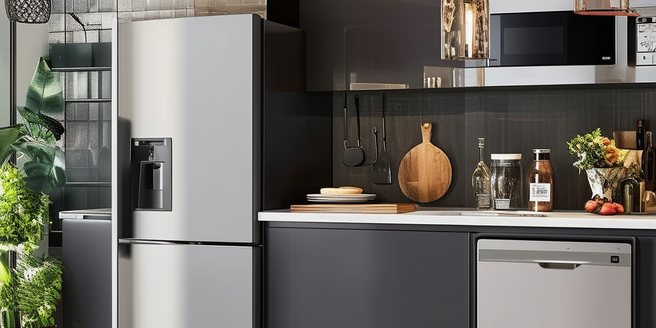
Understanding the Basics of Energy Efficiency
Energy efficiency often refers to the goal of reducing the amount of energy required for services or products. One of the most effective ways to achieve this is via insulation to reduce heat loss in buildings. This can be achieved through a variety of methods, ranging from the use of modern technology to simple lifestyle changes. For instance, heating a house less in winter, cooling it less in summer, or traveling less distance. Energy efficiency is beneficial not only on an individual level but also worldwide, as it actively contributes to the reduction of harmful greenhouse gas emissions.
The Role of Smart Home Technology in Energy Efficiency
Smart home technology paves the way towards a sustainable future by offering homeowners the opportunity to automate various aspects of their day-to-day life. This technology incorporates numerous appliances and provides the ability to control diverse home functions ranging from lighting systems to the overall home environment. Notably, Smart thermostats have revolutionized the controlling aspect of heating and cooling systems by learning user preferences and employing the most energy-efficient temperature settings. The harmonious work of these smart technologies greatly reduces energy wastage, thus lowering the carbon footprint while promoting an eco-friendly environment. This effective energy optimization not only reduces consumption but also translates into significant savings on energy bills, making smart home technology a long-term investment. Hence, smart home technology presents an economical and sustainable solution that enables homeowners to automate various home functions while ensuring a comfortable and eco-friendly living environment.
Different Types of Smart Home Technology for Energy Efficiency
Intelligent home technologies available today include smart thermostats, which adjust to specific patterns of occupancy and energy use, providing energy-conscious heating and cooling systems. These thermostats learn habits, amend to personal schedules, and recognize when the house is vacant to manage temperature properly. Equally important, smart power strips reduce phantom energy use by shutting off the power supply to electronic devices when not in use. Additionally, intelligent lightbulbs save energy by dimming or turning off when not in use with integrated motion sensors. Finally, smart plug adaptors play an essential role in energy efficiency by allowing remote control of electronics, minimizing unnecessary power usage. Essentially, these smart home technologies enable efficient energy consumption, reduce unnecessary energy costs, and maintain comfort and convenience.
How To Maximize Energy Efficiency With Smart Home Technology
To fully benefit from energy efficiency using smart home technology, property owners and residents should adopt a comprehensive method, considering smart lighting systems, advanced heating and cooling mechanisms, and modern electronics. Smart technologies, designed to be energy efficient, allow for reducing power consumption and increasing the longevity of devices. For instance, smart lighting systems can be programmed to provide optimal illumination while consuming less power. Also, intelligent heating and cooling systems can considerably reduce energy usage by automatically adjusting temperatures. Energy-saving settings and smart controls on household appliances and electronics can significantly decrease energy consumption. Lastly, such strategic usage of smart home technology reduces environmental footprint. By embracing these modern solutions, homeowners can enjoy energy-saving opportunities, potentially cutting down on energy costs and contributing to sustainability.
Case Studies: Positive Impact of Smart Home Technology on Energy Efficiency
Smart home technologies have been extensively documented for their beneficial effects on energy efficiency. These range from smart thermostats, which are estimated to have effectively reduced heating and cooling costs by around 10-15%, to intelligent power strips which can identify when a device is not in use and shut off its power supply, thus reducing energy usage by about 25%. Such technologies don’t simply control temperature or power devices; they adapt and learn from user behavior and patterns, yielding notable savings and fostering energy efficiency. The tangible benefits from these technologies underline the growing importance of merging technological advancements with sustainability practices, crucially contributing to achieving a technologically adept and sustainable future.
Future Trends: The Evolution of Smart Home Technology for Energy Efficiency
Forthcoming trends in smart home technology focus on enhancing energy efficiency, with the advancement of AI technology enabling the development of AI-driven energy management systems. These systems learn your patterns and habits, optimizing energy usage and making homes more energy-efficient, and their continuous monitoring of energy in different home areas ensures unprecedented efficiency levels. Also, these technology trends make energy-efficiency accessible, with user-friendly interfaces and streamlined processes helping homeowners better understand and control their energy usage to reduce consumption. Therefore, the goal is to make this management an intuitive part of household routines. These technology trends are set to help the smart home industry achieve superior energy efficiency and unparalleled accessibility for users. These efforts are significant contributors to global sustainability and use the benefits of advanced smart home technology to make energy-saving practices regular in modern homes.
